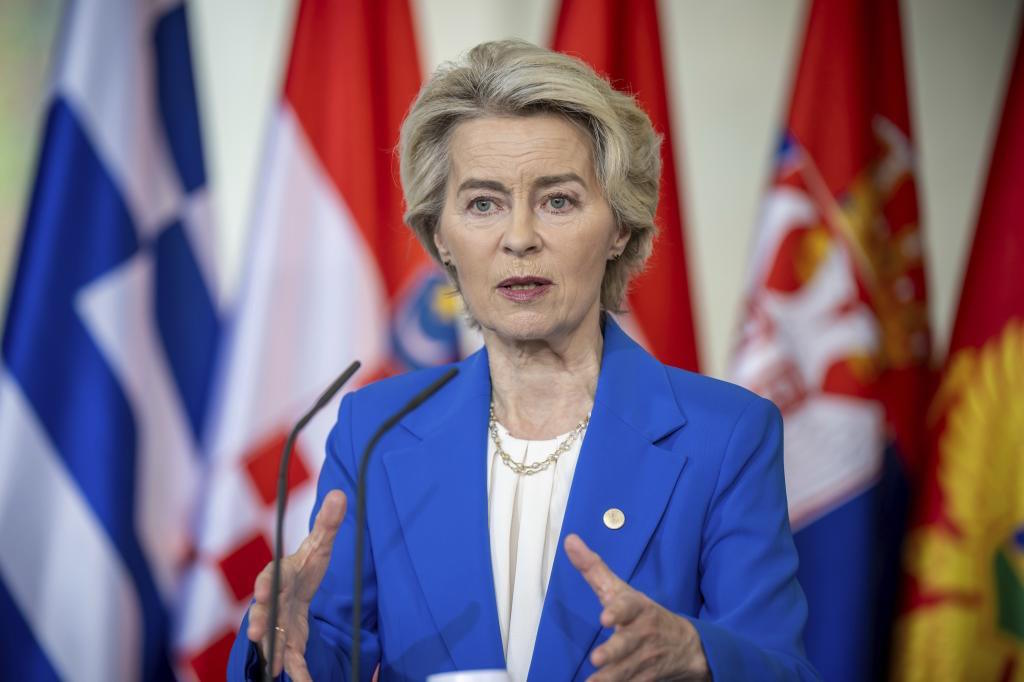Ursula von der Leyen has proposed to the 27 EU countries the establishment of immigration centers outside the Union's borders, which represents a significant hardening of her discourse and also aligns with the policies established by the most radical and extremist European countries. In fact, the Commission President points out the system implemented by the Italian President, Giorgia Meloni.
"We should continue exploring possible ways to advance the idea of developing return centers outside the EU, especially with a view to a new legislative proposal on returns," Von der Leyen states in a letter she has sent to the member countries before this week's European Council, which will also address immigration in addition to the situation in Ukraine and the Middle East. She adds: "With the start of operations of the Italy-Albania protocol," referring to that system established by Meloni, "we will also be able to draw lessons from this experience in practice."
Von der Leyen highlights this measure under the heading "working on designing innovative solutions to contain illegal immigration," and her measure not only follows Italy's steps but also recalls what Viktor Orban, President of Hungary, requested last week in the European Parliament. Orban's speech sparked much controversy, and there are substantial differences between what the current Council President also pointed out, but there are also similarities.
Furthermore, Poland has already taken the first step to suspend the right to asylum, and Spain is also calling for solutions with a very different approach. But ultimately, the issue of immigration and the control of movements will not only be pending at the next Council but also in the coming months.
